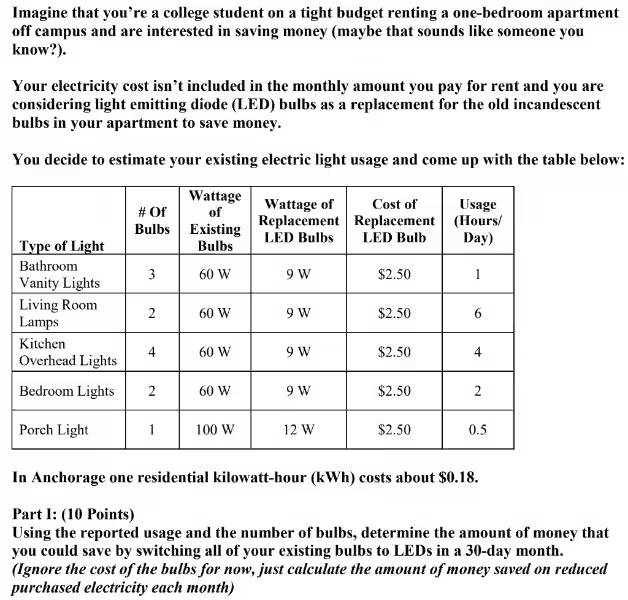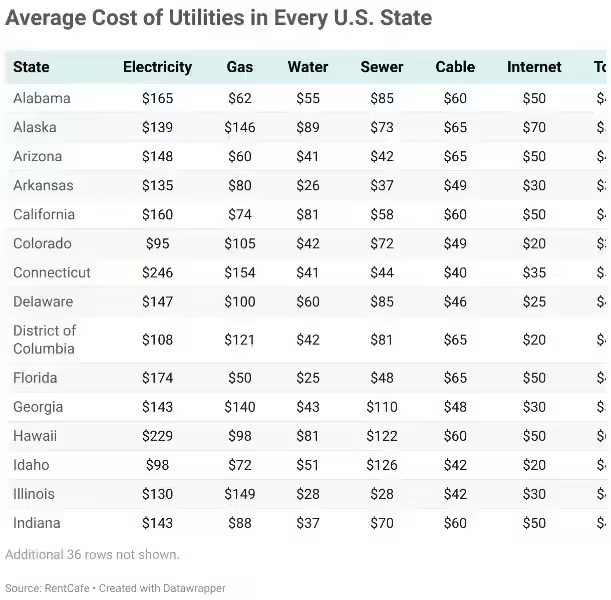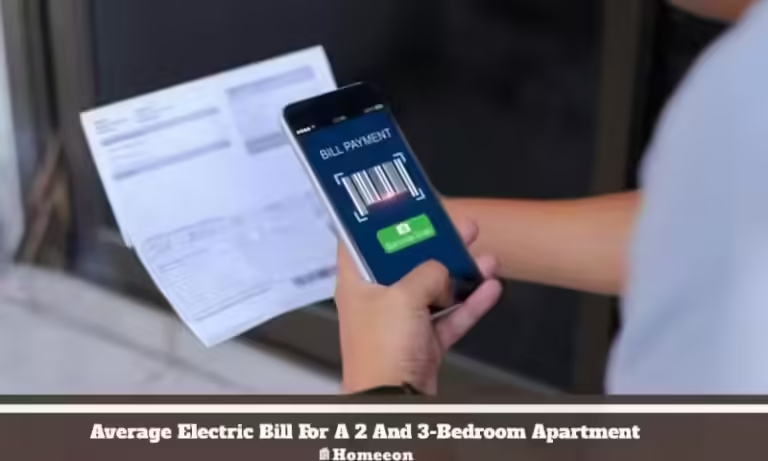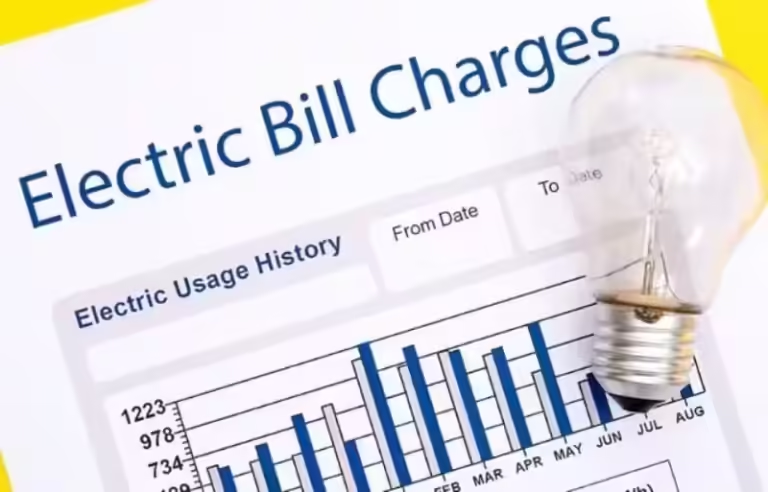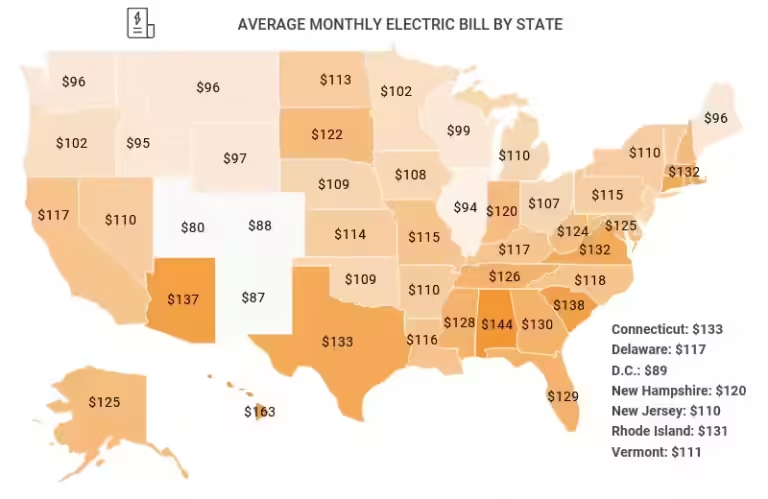How Much Is My Electricity Bill for a One-Bedroom Apartment?
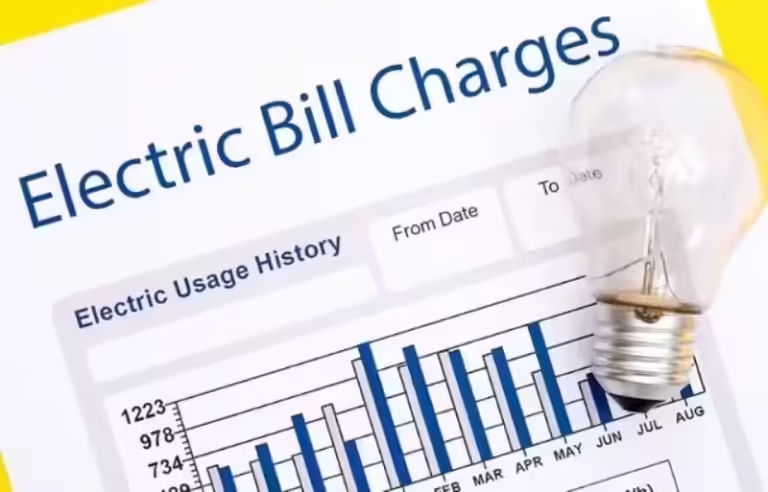
The cost of electricity for a one-bedroom apartment can vary widely depending on several factors, including location, energy consumption habits, and the cost of electricity in your area. While there's no single answer to the question of how much your electricity bill will be, understanding the key factors impacting your electric bill can help you budget and save money.
Factors Influencing Your Electricity Bill
Several factors contribute to the cost of your electricity bill for a one-bedroom apartment. These factors can significantly impact your monthly energy expenses, so it's essential to understand them to make informed choices about your energy consumption.
1. Location
The cost of electricity varies significantly across the country, with some states and cities having much higher rates than others. For example, Hawaii has the highest average electricity cost in the US, while Idaho has the lowest.
2. Apartment Size and Insulation
Larger apartments generally require more energy to heat and cool, leading to higher electricity bills. Similarly, poorly insulated apartments can lose heat or cool air more easily, increasing energy consumption and costs. Newer apartments tend to be more energy-efficient due to better insulation and more efficient appliances, resulting in lower electricity bills.
3. Number Of Residents
The number of people living in a one-bedroom apartment directly affects electricity usage. More residents mean more appliance use, longer showers, and more time spent using lights and electronics, leading to higher electricity costs. However, having more roommates can also mean splitting the electricity bill, potentially reducing individual costs.
4. Energy Consumption Habits
Your personal energy consumption habits significantly impact your electricity bill. Consider these factors:
- Heating and Cooling: These are the biggest consumers of electricity, especially during extreme temperatures. Adjust your thermostat and use energy-efficient heating and cooling systems to reduce your bill.
- Appliance Use: Appliances like refrigerators, ovens, washing machines, and dryers consume significant amounts of electricity. Choosing energy-efficient models and using them responsibly can save you money.
- Lighting: Replace traditional incandescent bulbs with energy-efficient LED bulbs, which consume less energy and last longer.
- Electronics: Unplug electronics when not in use, as many devices continue to draw power even when turned off.
- Work-from-Home Setup: If you work from home, consider the energy impact of using computers, printers, and other electronics throughout the day.
5. Electricity Rates
Electricity rates can fluctuate based on time of day and season. Some utilities offer time-of-use rates, with lower costs during off-peak hours and higher costs during peak demand periods. Understanding these rates can help you adjust your energy usage to save money.
Estimating Your Electricity Bill
Estimating your electricity bill involves considering your energy consumption habits, appliance usage, and local electricity rates. Here's a breakdown of how to estimate your bill:
- Track Your Energy Use: Keep a log of your appliance usage, shower times, heating and cooling habits, and other energy-consuming activities.
- Calculate Your Appliance Energy Consumption: Each appliance has a specific energy consumption rate, typically measured in kilowatt-hours (kWh). You can find this information on the appliance's energy label or online.
- Determine Your Local Electricity Rate: Contact your local utility provider or check their website to find the current electricity rate per kWh.
- Calculate Your Estimated Bill: Multiply your total energy consumption (in kWh) by your local electricity rate per kWh. This will give you an estimate of your monthly electricity bill.
Saving Money on Your Electricity Bill
There are several ways to reduce your electricity bill and save money:
- Adjust Your Thermostat: Set your thermostat to a comfortable temperature while you're home and lower it when you're away or sleeping. This can significantly reduce your heating and cooling costs.
- Use Energy-Efficient Appliances: Look for appliances with Energy Star ratings, which consume less electricity and save money over time.
- Switch to LED Lights: LEDs consume significantly less energy than traditional incandescent bulbs and last longer, reducing your electricity bill and replacing costs.
- Unplug Electronics When Not in Use: Even when turned off, many electronics continue to draw power. Unplugging them when not in use can save you energy and money.
- Install a Smart Thermostat: Smart thermostats can automatically adjust your heating and cooling based on your schedule and preferences, helping you save energy.
- Take Shorter Showers: Shorter showers can significantly reduce your water heating costs, especially if you use a tank-style water heater.
- Wash Clothes in Cold Water: Washing clothes in cold water uses significantly less energy than using hot water.
- Air Dry Laundry: Air-drying your clothes instead of using a dryer can save you a significant amount of electricity.
The cost of electricity for a one-bedroom apartment can vary widely, but by understanding the factors that influence your electricity bill and implementing energy-saving strategies, you can reduce your monthly costs and save money on your energy expenses. Remember to track your energy use, consider your lifestyle and habits, and explore energy-efficient options to make informed decisions about your energy consumption.
Frequently Asked Questions about 1-Bedroom Apartment Electricity Bills
How much is the average electricity bill for a 1-bedroom apartment?
The average electricity bill for a 1-bedroom apartment in the US can range from $75 to $168 per month.
What factors affect my electricity bill?
Factors that influence your electricity bill include location, age of the apartment, electricity rates, number of people, lifestyle, and weather conditions.
How can I save on my electricity bill?
You can save on your electricity bill by adjusting your thermostat, using energy-efficient appliances, switching to clean energy, replacing old lights with LEDs, and making judicious use of electricity.
What are some clean energy solutions?
Jackery offers a range of portable solar generators and solar panels that provide a clean and efficient way to power your home and reduce your reliance on the grid.


